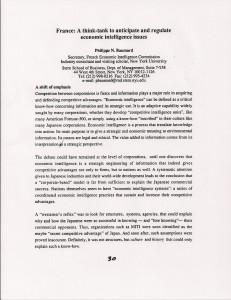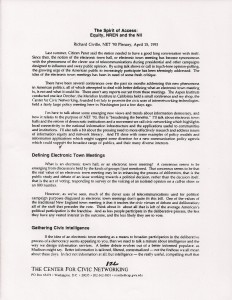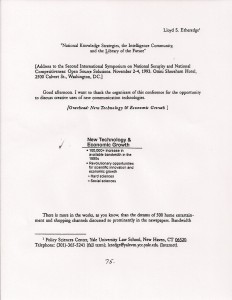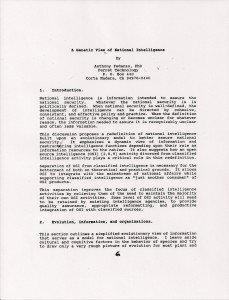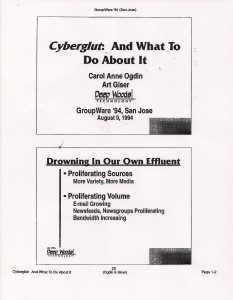
1993 (FR) Baumard on Learned Nations
Government, Historic Contributions
At the age of 27 Dr. Professor Beaumard was the youngest leader for French strategic planning in modern history. Today he is a visiting professor at Stanford University. Below is his historic contribution in 1993, and also, in the same year, his view on the need for economic intellience as a separate area for national inquiry and understanding.
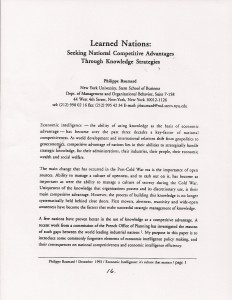
1993 Bonthous (FR) on Culture: The Missing Intelligence Variable
Cultural Intelligence, Historic ContributionsRESTORED with modified Author Bio. OSS1997-02-15-Bonthous Fixed
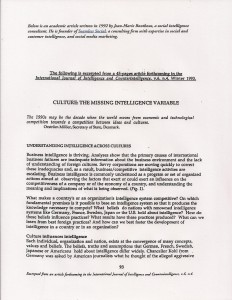
Full PDF Click File Line Above Image
1993 Civille (US) The Spirit of Access
Historic Contributions1993 Etheredge (US) National Knowledge Straties, the Intelligence Community, and the Library of the Future
Government, Historic Contributions1993 Fedanzo (US) A Genetic View of National Intelligence
Collective Intelligence, Historic Contributions1993 Greenwald (US) The Unrepresented Nations and Peoples Organization: Diplomacy’s Cutting Edge
Historic Contributions, Peace Intelligence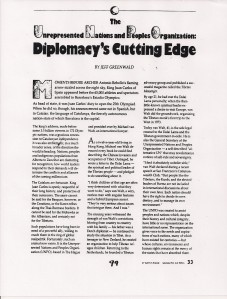
The matter of unrepresented peoples and nations, the voices not heard, may prove to be the single most important element to be addressed by 21st Century Intelligence.
We now know that prior to the arrival of Columbus in 1492, the indigenous peoples of the Americas had devised a breadth and depth of knowledge that was destroyed by European deseases and predatory invasions.
We now know that the voices of gender, of poverty, of minority, when not heard, cost society diversity of persception and feeling.
With the arrival of the Internet, and of the Nokie cell phone that does not need to be charged (it recharges with ambient energy), the people are, as Howard Zinn has anticipated, “a power government cannot suppress. ” We live in an “unconquerable world” as Jonathan Schell writes so ably.
Richard Falk, among others, is to be recognized for the pioneering work in the 1970's on the need for assemblies of peoples and of religions. Similarly, Philipp Allott, in “Health of Nations,” addresses the cosmic damages of the Treaty of Westphalia. As this is being written, Africa may be emerging as a continent finally able to create an African by, of, and for Africans.
Human Intelligence–all humans, all minds, all the time–NOT technical intelligence–is the future.

